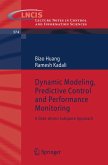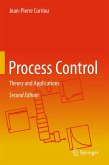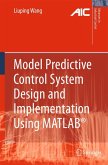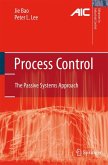Janos Abonyi
Fuzzy Model Identification for Control (eBook, PDF)
73,95 €
73,95 €
inkl. MwSt.
Sofort per Download lieferbar

37 °P sammeln
73,95 €
Als Download kaufen

73,95 €
inkl. MwSt.
Sofort per Download lieferbar

37 °P sammeln
Jetzt verschenken
Alle Infos zum eBook verschenken
73,95 €
inkl. MwSt.
Sofort per Download lieferbar
Alle Infos zum eBook verschenken

37 °P sammeln
Janos Abonyi
Fuzzy Model Identification for Control (eBook, PDF)
- Format: PDF
- Merkliste
- Auf die Merkliste
- Bewerten Bewerten
- Teilen
- Produkt teilen
- Produkterinnerung
- Produkterinnerung

Bitte loggen Sie sich zunächst in Ihr Kundenkonto ein oder registrieren Sie sich bei
bücher.de, um das eBook-Abo tolino select nutzen zu können.
Hier können Sie sich einloggen
Hier können Sie sich einloggen
Sie sind bereits eingeloggt. Klicken Sie auf 2. tolino select Abo, um fortzufahren.

Bitte loggen Sie sich zunächst in Ihr Kundenkonto ein oder registrieren Sie sich bei bücher.de, um das eBook-Abo tolino select nutzen zu können.
This book presents new approaches to constructing fuzzy models for model-based control. Simulated examples and real-world applications from chemical and process engineering illustrate the main methods and techniques. Supporting MATLAB and Simulink files create a computational platform for exploration of the concepts and algorithms.
- Geräte: PC
- ohne Kopierschutz
- eBook Hilfe
- Größe: 19.91MB
Andere Kunden interessierten sich auch für
![Dynamic Modeling, Predictive Control and Performance Monitoring (eBook, PDF) Dynamic Modeling, Predictive Control and Performance Monitoring (eBook, PDF)]() Biao HuangDynamic Modeling, Predictive Control and Performance Monitoring (eBook, PDF)73,95 €
Biao HuangDynamic Modeling, Predictive Control and Performance Monitoring (eBook, PDF)73,95 €![Process Control (eBook, PDF) Process Control (eBook, PDF)]() Jean-Pierre CorriouProcess Control (eBook, PDF)81,95 €
Jean-Pierre CorriouProcess Control (eBook, PDF)81,95 €![Fuzzy Control (eBook, PDF) Fuzzy Control (eBook, PDF)]() Fuzzy Control (eBook, PDF)113,95 €
Fuzzy Control (eBook, PDF)113,95 €![Subspace Methods for System Identification (eBook, PDF) Subspace Methods for System Identification (eBook, PDF)]() Tohru KatayamaSubspace Methods for System Identification (eBook, PDF)113,95 €
Tohru KatayamaSubspace Methods for System Identification (eBook, PDF)113,95 €![Model Predictive Control System Design and Implementation Using MATLAB® (eBook, PDF) Model Predictive Control System Design and Implementation Using MATLAB® (eBook, PDF)]() Liuping WangModel Predictive Control System Design and Implementation Using MATLAB® (eBook, PDF)137,95 €
Liuping WangModel Predictive Control System Design and Implementation Using MATLAB® (eBook, PDF)137,95 €![Process Control (eBook, PDF) Process Control (eBook, PDF)]() Jie BaoProcess Control (eBook, PDF)113,95 €
Jie BaoProcess Control (eBook, PDF)113,95 €![Process Modelling for Control (eBook, PDF) Process Modelling for Control (eBook, PDF)]() Benoît CodronsProcess Modelling for Control (eBook, PDF)113,95 €
Benoît CodronsProcess Modelling for Control (eBook, PDF)113,95 €-
-
-
This book presents new approaches to constructing fuzzy models for model-based control. Simulated examples and real-world applications from chemical and process engineering illustrate the main methods and techniques. Supporting MATLAB and Simulink files create a computational platform for exploration of the concepts and algorithms.
Dieser Download kann aus rechtlichen Gründen nur mit Rechnungsadresse in A, B, BG, CY, CZ, D, DK, EW, E, FIN, F, GR, HR, H, IRL, I, LT, L, LR, M, NL, PL, P, R, S, SLO, SK ausgeliefert werden.
Produktdetails
- Produktdetails
- Verlag: Birkhäuser Boston
- Seitenzahl: 273
- Erscheinungstermin: 6. Dezember 2012
- Englisch
- ISBN-13: 9781461200277
- Artikelnr.: 44194376
- Verlag: Birkhäuser Boston
- Seitenzahl: 273
- Erscheinungstermin: 6. Dezember 2012
- Englisch
- ISBN-13: 9781461200277
- Artikelnr.: 44194376
- Herstellerkennzeichnung Die Herstellerinformationen sind derzeit nicht verfügbar.
1 Introduction.- 1.1 Fuzzy Modeling with the Use of Prior Knowledge.- 1.2 Fuzzy model-based Control.- 1.3 Illustrative Examples.- 1.4 Summary.- 2 Fuzzy Model Structures and their Analysis.- 2.1 Introduction to Fuzzy Modeling.- 2.2 Takagi-Sugeno Fuzzy Models (TS).- 2.3 Fuzzy Models with Multivariate Membership Functions (MMF).- 2.4 Input Reduction of Fuzzy Models.- 2.5 Fuzzy Model Inversion.- 2.6 Linearization and Derivatives of Fuzzy Models.- 3 Fuzzy Models of Dynamical Systems.- 3.1 Data-Driven Empirical Modeling.- 3.2 TS Fuzzy Models of Dynamical Systems.- 3.3 TS Fuzzy Models of MIMO Systems.- 3.4 Hybrid Fuzzy Convolution Model (HFCM).- 3.5 Fuzzy Hammerstein Model (FH).- 4 Fuzzy Model Identification.- 4.1 Identification as an Optimization Problem.- 4.2 Consequent Parameter Identification.- 4.3 Model Structure Identification.- 4.4 Antecedent Membership Function Identification.- 4.5 MMF Fuzzy Model Identification.- 4.6 Hybrid Fuzzy Convolution Model Identification.- 4.7 Fuzzy Hammerstein Model Identification.- 5 Fuzzy Model based Control.- 5.1 Introduction to Fuzzy Control.- 5.2 Inverse Fuzzy Model based (Adaptive) Control.- 5.3 Introduction to Model Predictive Control.- 5.4 TS Fuzzy Model based Predictive Control.- 5.5 MIMO Fuzzy model based Predictive Control.- 5.6 HFCM based Predictor Corrector Controller.- 5.7 HFCM based Predictive Control.- 5.8 Fuzzy Hammerstein Model based Predictive Control.- 5.9 Grey-Box TS Fuzzy Model based Adaptive Control.- A Process Models Used for Case Studies.- A.l Model of the pH Process.- A.2 Electrical Water-Heater.- A.3 Distillation Column.- A.4 Model of the liquid level rig.- References.
1 Introduction.- 1.1 Fuzzy Modeling with the Use of Prior Knowledge.- 1.2 Fuzzy model-based Control.- 1.3 Illustrative Examples.- 1.4 Summary.- 2 Fuzzy Model Structures and their Analysis.- 2.1 Introduction to Fuzzy Modeling.- 2.2 Takagi-Sugeno Fuzzy Models (TS).- 2.3 Fuzzy Models with Multivariate Membership Functions (MMF).- 2.4 Input Reduction of Fuzzy Models.- 2.5 Fuzzy Model Inversion.- 2.6 Linearization and Derivatives of Fuzzy Models.- 3 Fuzzy Models of Dynamical Systems.- 3.1 Data-Driven Empirical Modeling.- 3.2 TS Fuzzy Models of Dynamical Systems.- 3.3 TS Fuzzy Models of MIMO Systems.- 3.4 Hybrid Fuzzy Convolution Model (HFCM).- 3.5 Fuzzy Hammerstein Model (FH).- 4 Fuzzy Model Identification.- 4.1 Identification as an Optimization Problem.- 4.2 Consequent Parameter Identification.- 4.3 Model Structure Identification.- 4.4 Antecedent Membership Function Identification.- 4.5 MMF Fuzzy Model Identification.- 4.6 Hybrid Fuzzy Convolution Model Identification.- 4.7 Fuzzy Hammerstein Model Identification.- 5 Fuzzy Model based Control.- 5.1 Introduction to Fuzzy Control.- 5.2 Inverse Fuzzy Model based (Adaptive) Control.- 5.3 Introduction to Model Predictive Control.- 5.4 TS Fuzzy Model based Predictive Control.- 5.5 MIMO Fuzzy model based Predictive Control.- 5.6 HFCM based Predictor Corrector Controller.- 5.7 HFCM based Predictive Control.- 5.8 Fuzzy Hammerstein Model based Predictive Control.- 5.9 Grey-Box TS Fuzzy Model based Adaptive Control.- A Process Models Used for Case Studies.- A.l Model of the pH Process.- A.2 Electrical Water-Heater.- A.3 Distillation Column.- A.4 Model of the liquid level rig.- References.







